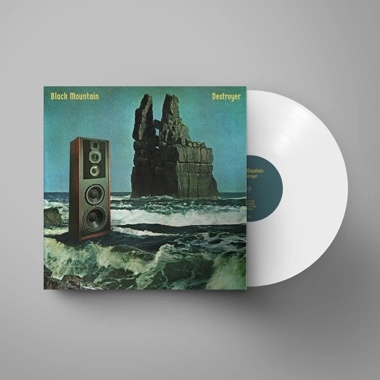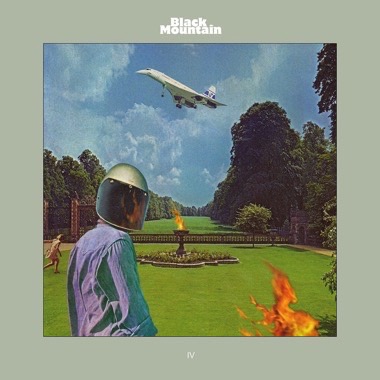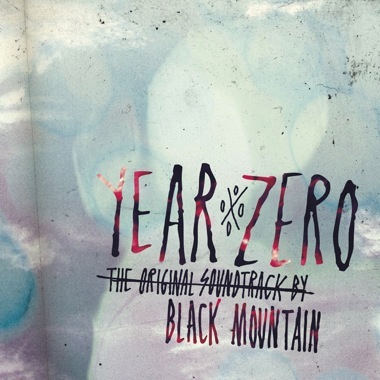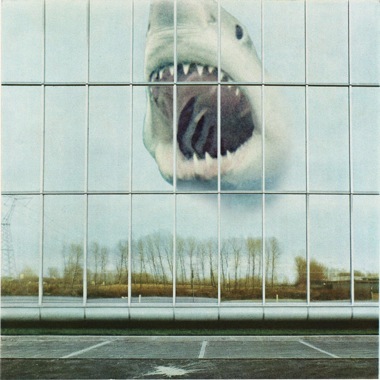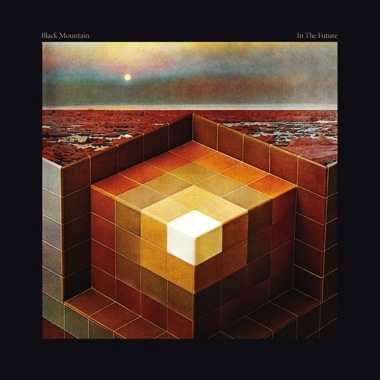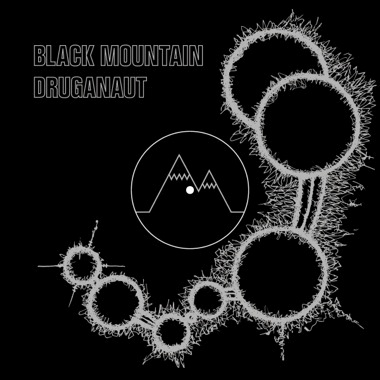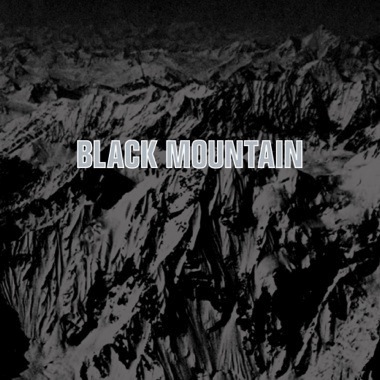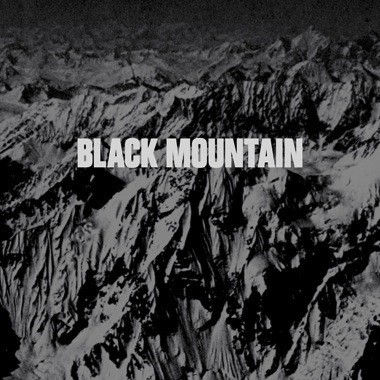
Black Mountain
Black Mountain (10th Anniversary Deluxe Edition)
JAG270
Released: June 23, 2015
FORMATS:
2xLP Grey
2xLP Black
2xCD
- Modern Music
- Don't Run Our Hearts Around
- Druganaut
- No Satisfaction
- Set Us Free
- No Hits
- Heart Of Snow
- Faulty Times
- Druganaut (Extended Remix)
- Buffalo Swan
- Bicycle Man
- Behind The Fall
- Set Us Free (Demo)
- Black Mountain (Demo)
- No Satisfaction (UK Radio)
- It Wasn't Arson
It’s only a cliché because it’s true, but the greatest records are timeless. Black Mountain’s self-titled debut album is just such a record, its roots leading twisting paths back into the past, while always sounding like ‘now’, like a future still to come. The work of a small collective of musicians operating from Vancouver, Canada, far from any industry buzz but firmly in the eye of their own storm of creativity, Black Mountain’s debut album was, of course, a beginning, but it also marked an ending for Jerk With A Bomb, the group that preceded Black Mountain.”Some of us came from the punk scene, but sonically we weren’t a punk band.” says bandleader Stephen McBean, of the group who, over their three-album lifespan, gathered together three future soldiers in the Black Mountain Army: Joshua Wells, Amber Webber and McBean. “We didn’t fit in – round pegs or square holes. We took the new name, and everything fell into place.”Begun as the fourth Jerk With A Bomb album, Black Mountain’s debut grew from skeletal sessions cut by McBean and Wells. “We laid down the bed tracks, the guitars and drums,” remembers McBean. “Matt [Camirand, bass] joined, and we changed the band name after a dream of how life could be different in the B section between Black Flag and Black Sabbath. Josh’s roommate Jeremy [Schmidt, keys] was lurking about. We asked him if he wanted to add some synth bleeps or whatever. He came back with all these orchestrated keyboard parts, and we said, ‘Oh, you should probably join the band now.'”McBean had been sending Jerk With A Bomb recordings to Chris Swanson of Jagjaguwar since their second album. “They were one of the few labels that got back to us, though they said they weren’t looking for new bands,” says McBean. But a slow avalanche of further McBean recordings changed their mind; the label even signed Black Mountain’s sister group, Pink Mountaintops, whose debut album preceded Black Mountain’s by six months. “The advance for recording and mastering Black Mountain was a thousand bucks,” says McBean. “And Jagjaguwar said if we sold 3,000 records, that would be good. We were, like, ‘Right on!’ Because Jerk With A Bomb had sold about twelve records.”They cut the album at the Hive in Vancouver, recording in “a big cement room with a tall ceiling, nice boomy acoustics, lots of natural reverb,” remembers McBean, “on an 8-track reel-to-reel tape recorder.” During the sessions, these elemental first Black Mountain tracks found their true shape: the wry, giddy shuffle of “Modern Music,” with its Roxy Music sax and Velvets-y chug; the epic, sky-staring riffage of “Don’t Run Our Hearts Around;” the hypnotic, gracefully heavy groove of “Druganaut;” the joyful rush of “No Satisfaction;” the dark, powerful blues of “Set Us Free;” the mysterious murk of “No Hits.” Here was a new classic rock, its reference points arcane and clear, its sound fresh, unfamiliar and irresistible.The record easily sold more than the 3,000 Jagjaguwar were initially hoping for, aided by early press plaudits and the word-of-mouth buzz the album stirred. “It happened real quick,” remembers McBean. “We got a good review in Pitchfork – I was like, ‘What’s Pitchfork??’ – but it was cool, they were really supportive, as was the UK press. I don’t know what the album initially shipped, but they had to scurry and repress it early on.”The album’s initial success saw the band take to the road, leaving their Vancouver enclave for stages across Canada, America and Europe. “It felt like there was a real explosion of excitement at shows,” remembers McBean. “The first couple of tours, we kinda were pretty shambolic. We wouldn’t write setlists, we’d just feel the energy in the room and call things out, jamming on songs like ‘No Hits’ and ‘Druganaut.’ It was a good time for live rock’n’roll: DJ booths were being transformed back to drum risers, people were digging 20 minute jams and there were bands like Comets On Fire and Oneida out there who we felt kinship with. I was into Faust and Amon Duul but had no idea of the scene of modern bands doing that stuff. And then we met those bands, and it was cool. And then we went on tour with Coldplay…and the adventures continued.”Their jaunt across the world as guests of perhaps the biggest band in the world right then is a tale for another time, perhaps: the start of Black Mountain’s next chapter, and all that followed. For now, savour the compact, spacey brilliance of that cosmic, heavy and subtle debut album, expanded now with a raft of delicious bonus tracks scavenged from the Black Mountain Army archives.”Once you’re done recording and touring a record, it’s hard to listen to it again for a long time,” says McBean. “but it’s fun when you hear your songs in strange contexts and don’t recognize them at first, like the other night I was watching some new Kevin Bacon show with a surreal orgy scene and Black Mountain playing in the background. Listening back to the first album again for the remaster, there were lots of things I dug about it, and it brought back a bunch of memories. When we made it, there were no expectations. We were hoping maybe twenty people would dig it. So everything that happened with it was really, really cool.”

